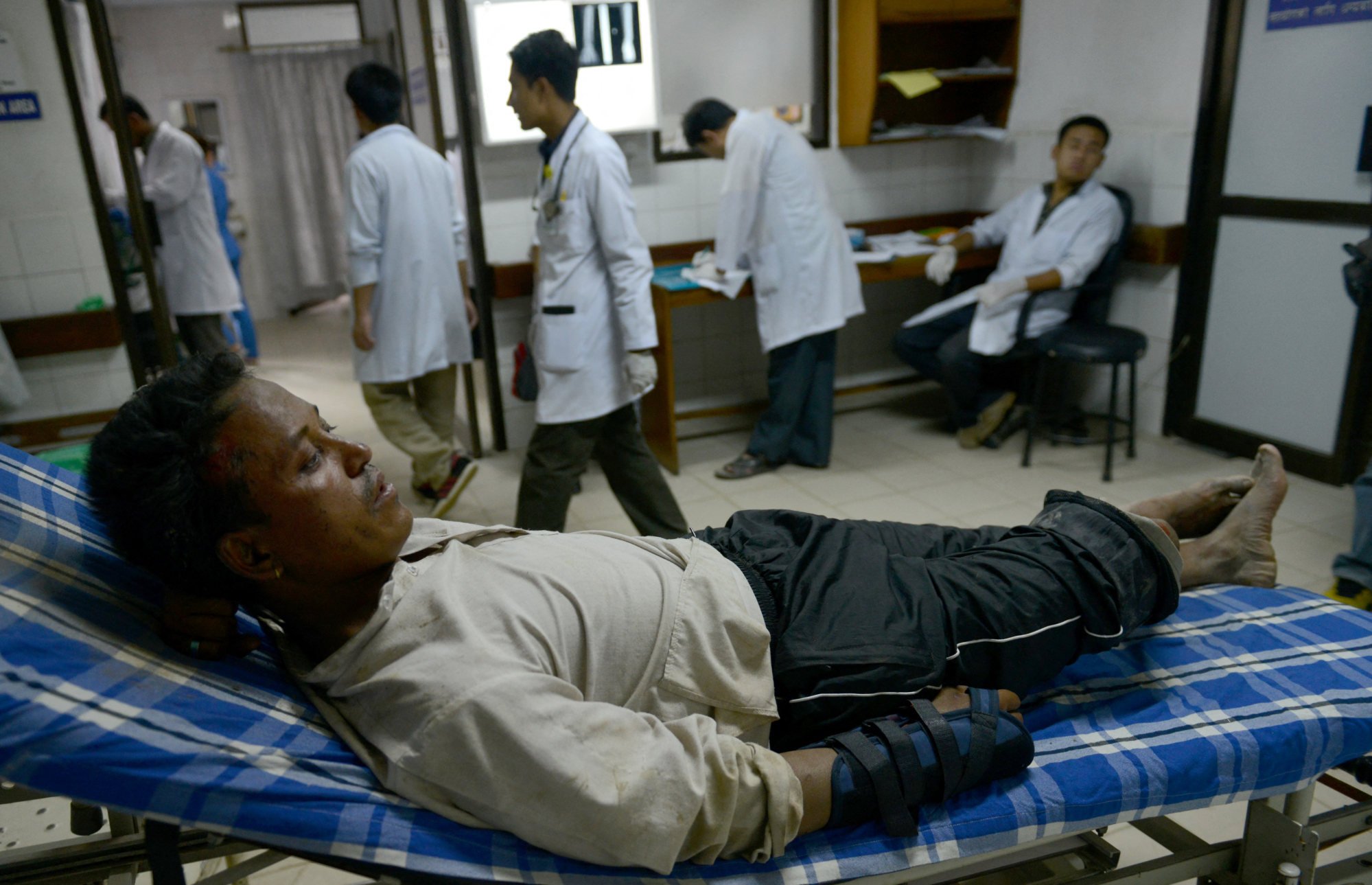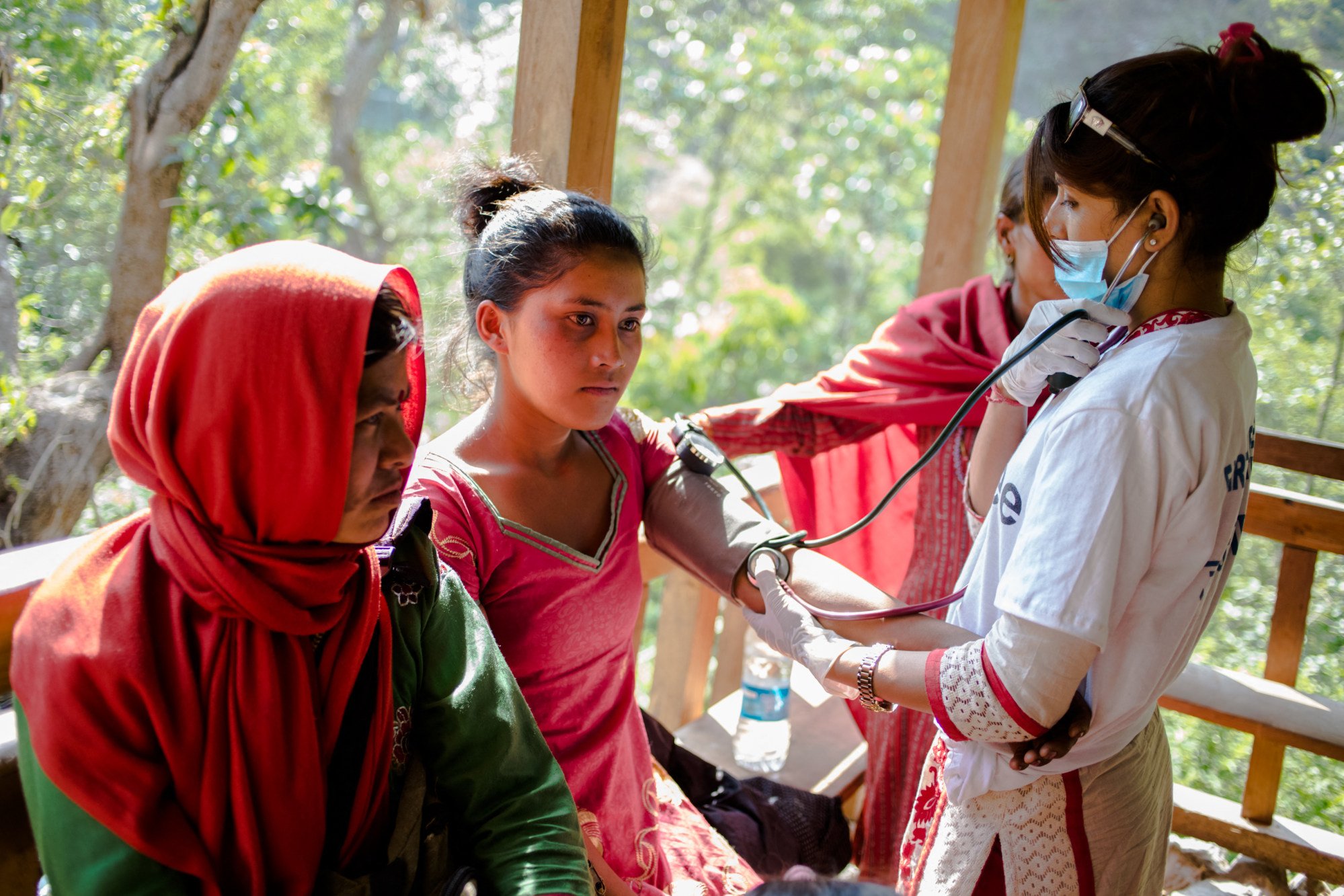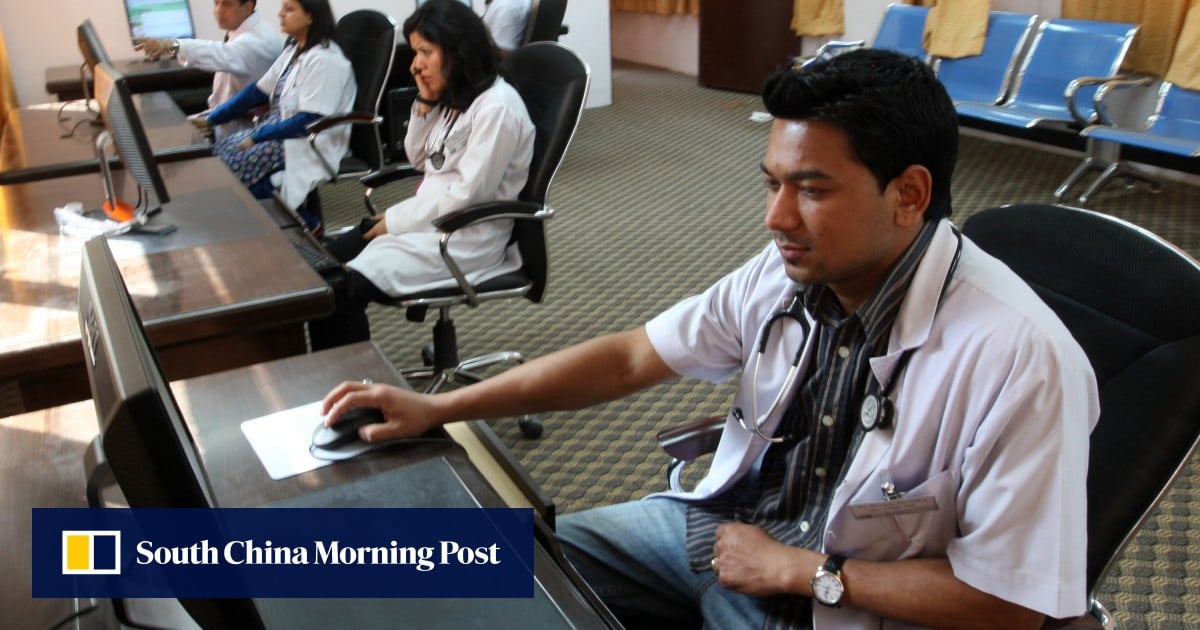The US non-profit Federation of State Medical Boards, which co-sponsors the USMLE, did not respond to This Week in Asia’s emails and phone calls for comment.
Doctors in Nepal like Puja, and those already working in the US, said the decision discredited Nepali medical practitioners and cast doubt on their years of hard work spent preparing for the exams.
“Tagging Nepalis means that medical programmes are not going to consider your application because they don’t want to take the risk,” said Puja, whose scores for the last phase of the USMLE were invalidated. “I am certified and eligible to go into the programme, but now I’m unsure.”
The USMLE is a gruelling three-step exam, with each part entailing long hours of testing. A passing grade allows international medical school graduates to practice medicine in the US. Foreign test takers are required to get certified by the Educational Commission for Foreign Medical Graduates in the US – which Puja had completed – after the second step, allowing them to take the third-step exam within a limited period of time.

The USMLE’s statement said the “anomalous exam performance” of the affected Nepali students could be “indicative of prior unauthorised access to secure exam content”. But Puja and others involved said the USMLE had not offered any concrete evidence to prove Nepali students may have cheated, and that all students with high scores, regardless of their nationality, should be investigated.
Earlier this month, medical news website Medscape reported that USMLE exam questions were being sold on social media platforms for US$300 to US$2,000.
A quick search for such materials on Facebook leads to posts with now-dysfunctional WhatsApp chat group links. One post said “get your exam date exact leak questions and answers (sic)”.
While there may indeed be test materials being sold online, many practising doctors and academics in the US have called out USMLE’s decision to target exam takers from Nepal.
The blanket statement to describe Nepali students was a wrong and ill-advised move
Ramu Kharel, an assistant professor of emergency medicine at Brown University, said that even though the integrity of the exam was important and cheating shouldn’t be allowed, associating the problem with a particular nationality could lead to negative consequences, not just for exam takers but those already practising outside the country.
He said he had heard reports of Nepali doctors “being seen in a certain way” in the US, implying suspicions about their capabilities.
“The blanket statement to describe Nepali students was a wrong and ill-advised move,” he told This Week in Asia. “That’s a form of discrimination.”
Kharel has started a Change.org petition calling on USMLE to redact and change the statement regarding applicants from Nepal, saying it pushed a narrative that “individuals from certain countries are likely to engage in academic dishonesty – a harmful and deeply rooted stereotype”. The petition has collected over 2,700 signatures so far.
Nepal villagers step up efforts to save cancer-treating yew trees
Nepal villagers step up efforts to save cancer-treating yew trees
The American healthcare system employs many international medical graduates, with one in five active physicians born and educated abroad as of 2021. There are estimated to be more than 1,500 Nepali doctors in the US.
“It makes sense to investigate suspicious test scores … but naming Nepal only adds to the stigma against international medical graduates from Nepal,” said Bibhav Acharya, a psychiatrist and associate professor from University of California San Francisco.
“Rather than maintain the credibility of the test, including Nepal in their [statement] has shattered the credibility of those Nepali international medical graduates who have taken the USMLE and not done anything wrong.”
There has been a growing trend of Nepali medical graduates migrating to foreign countries for better work opportunities and pay, with most of them choosing the US. The latest data from the Nepal Medical Council, which registers and licenses doctors to practice in the country, showed that nearly 500 people had obtained the good standing certificate – a document required for employment, residency and going abroad – in 2022 to practice in the US, up from about 270 in 2021 and 2020.

Puja said she had intended to stay in Nepal after her internship and take the Public Service Commission exam, which helps secure government posts. But she said working full-time at an under-resourced local hospital had given her a reality check.
“Doctors are also humans, and we seek personal convenience and professional growth,” Puja said. “When I realised it was difficult to attain that in Nepal, I decided to try for the US.”
Acharya, who co-founded the non-profit Possible, which delivers health care to Nepal’s remote regions, understood Puja’s point of view. He said there wasn’t a shortage of doctors willing to work in remote areas, but a “shortage of reliable employers – including the government – that provide a good wage”.
Widespread corruption, nepotism and neglect provide further frustrations for the country’s medical practitioners.
“There will always be some doctors who will want to leave the country, but many are willing to stay in Nepal if the government could provide a wonderful work environment where their skills can have a positive impact on their patients,” Acharya said.
In Nepal, deformities in birds expose ‘worrisome’ impact of pollution
In Nepal, deformities in birds expose ‘worrisome’ impact of pollution
But many don’t see the changes happening soon. Puja said the mental anguish caused by her exam results being invalidated had affected her deeply.
This week, an order by the District Court for the District of Columbia suspended the deadline the USMLE gave to test takers whose scores were invalidated after a lawsuit was filed on behalf of those affected by the decision.
The USMLE had given those examinees the choice of retaking the exam, having their invalidated results reconsidered, or taking no action. The last option would prevent them from retaking the USMLE for three years, according to an email seen by This Week in Asia.
Puja said retaking the exam would likely take a psychological toll and another major investment in “time, effort and money” for doctors like her who have to study while working at the same time.
“You need to dedicate yourself to prepare for the exams, and it’s very stressful,” she said. “It’s not a joke.”
Meanwhile, Kharel said that USMLE’s decision had already “done the damage”, and would likely stain the reputation of Nepali doctors, even if the US body were to redact and clarify its statement.
“This has raised some doubts about Nepali applicants among programme directors in the US,” he said. “Unless they seriously fix this, they will think twice when they see Nepal’s name.”
